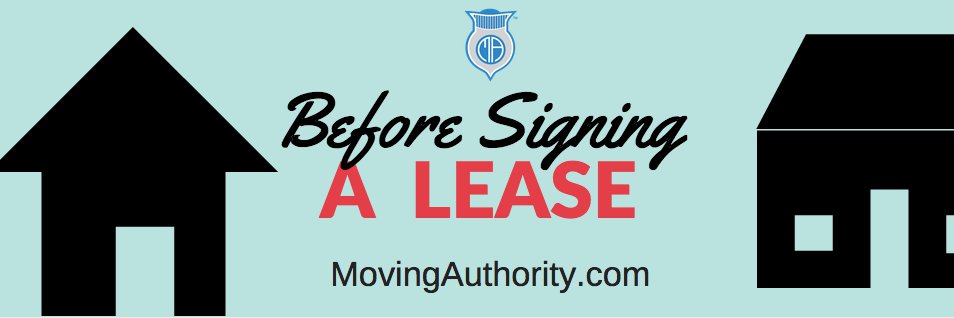What You Need to Know Before Signing a Lease

Tips to Know Before Signing a Lease
- The Lease is More Important than People Think
- Read the Lease Before You Move
- It's Ok To Negotiate
- Not All Leases Are Created Equal
- Ask About Personalizing the Property
- Policies Regarding Pets
- Automated Lease Renewals
- Utilities
- Late Fees
- Maintenance and Upkeep
- Getting Out of the Lease

1. The Lease is More Important than People Think
- A lot of people are so caught up in the excitement of getting a fresh set of keys to their new home that they skip through the lease signing process. Many first-time lessees don’t even read what they are signing, and simply assume that they are signing a lease with basic terms. Unfortunately, there are a lot of landlords who are not pure-hearted and will try to scam the tenant any way they can to make an extra buck. Whether you are signing your first lease or your fifth, there are some things that are critical to know when providing your signature on the dotted line.
2. Read the Lease Before You Move
- We know how long it may take to read through a pages-long lease, but no matter how long or boring it is, you have to read it before you sign. There is little sense in reading it after you have signed because you will only be reading over what you already agreed to. At this point, it’s too late to go back. Before signing, you should most definitely look over all the terms, and don’t be shy. If something is confusing or unclear, make it be known to your landlord. If you have a lawyer that you would like to look over the lease before giving your signature, you may ask for a copy from the landlord.
3. It’s Okay to Negotiate
- A lease always has some room for negotiations. If you would like a change in terms, or to make a compromise on something that is not entirely appealing to you on the lease, don’t be afraid to talk to the landlord about it. Make sure that any changes or agreements that are made are also noted on the lease. Just verbally agreeing to something will prove to be useless should a dispute arise in the future.
4. Not All Leases Are Created Equal
- Never make the assumption that the lease in your current home will be the same as the one you are about to sign. It will most likely not bear the lease bit of resemblance to the lease you are currently a part of. A lot of landlords will just use one of the many leases that can be found online, and some won’t even bother to read it before issuing it to you.
5. Ask About Personalizing the Property
- Even if there is nothing restricting it in the lease, it may not be okay for you to do any kind of customizations within the property. If you want to paint a room or install a light fixture, be sure to get written consent from your landlord prior to beginning any renovations. Has the consent written into your lease?
6. Policies Regarding Pets
- If you plan on bringing a pet to your new home, or if you want to get a pet after you move, be sure to look over the lease carefully for any clauses regarding pets. Even though your landlord might have said that it is okay to have pets, the lease may specify that it is only okay to have dogs less than 30 pounds, or no cats or snakes, etc… It is better to be informed of what is allowed from the start than to have to pay later. Often times, there are also certain breeds of dog that are frowned upon by landlords. Be sure to get all of these terms clear before move in.
7. Automated Lease Renewal
- Depending on the lease, there may be a clause that states the lease will renew automatically after it comes to an end. If this is not something in your lease, but you would like it to be, talk to your landlord.
- Your lease may say that you are expected to pay for certain utilities, while others are included in your rent. Or maybe, you have to pay for all of them. Or none of them are included. This depends on the kind of lease you have. Like everything we have mentioned, be sure to read the lease to find this information.
9. Late Fee
- You may assume that you have a five or ten day period for getting your rent to the landlord. However, we have made it more than clear that assumptions are dangerous when it comes to committing to a lease.
10. Maintenance and Upkeep
- A lot of people leasing a new home assume that all repairs will be the sole responsibility of the landlord. However, some circumstances say you are responsible for the first hundred dollars in repair costs. Or, if you are leasing a home, you may be responsible for the gardening fees.
- Make sure you are completely familiar with the part of your lease that discusses what happens if you need to break the lease. Maybe you have to relocate for a new job or to join the armed forces. In any case, see what your options are. Ask about subletting if it is not already mentioned.


Add Comment